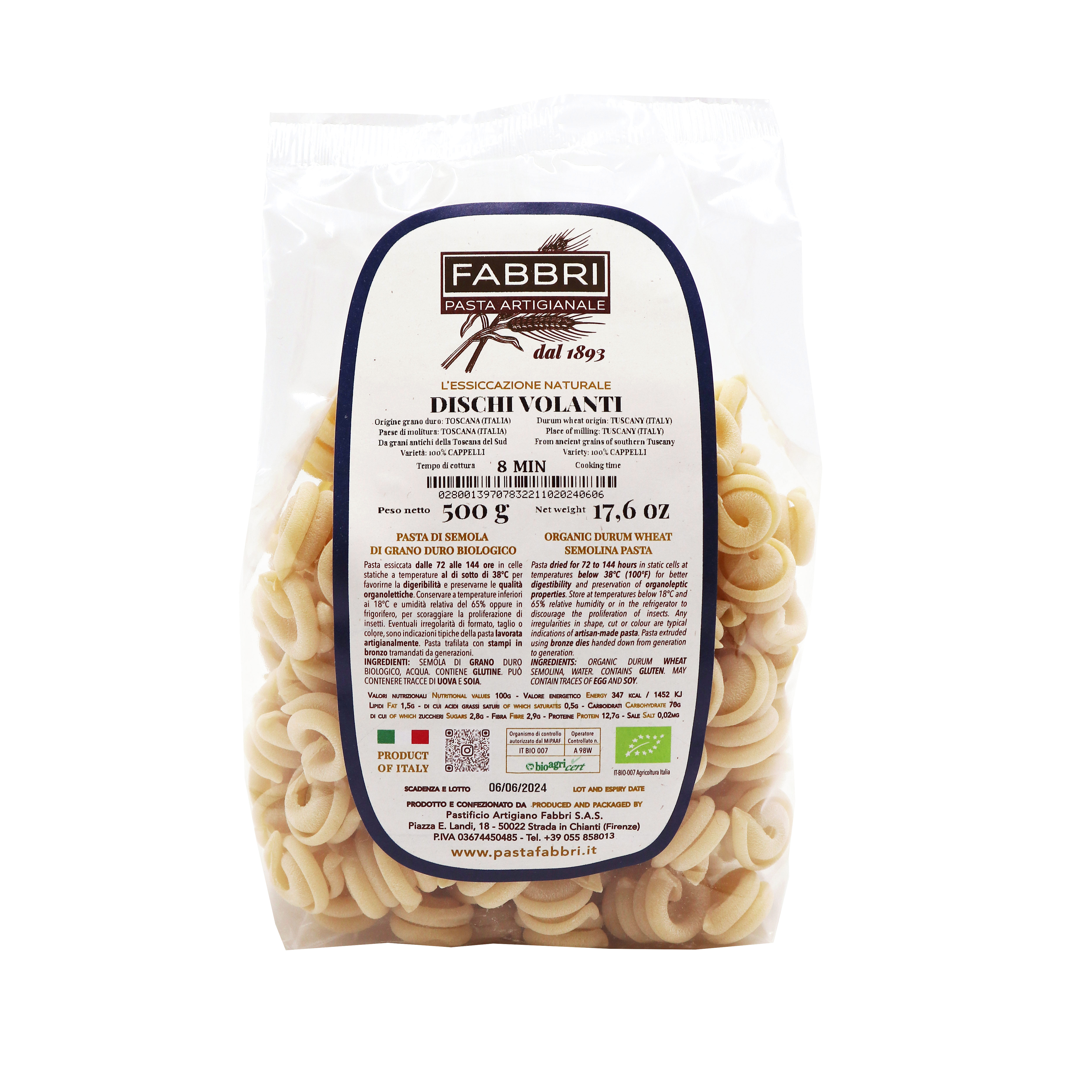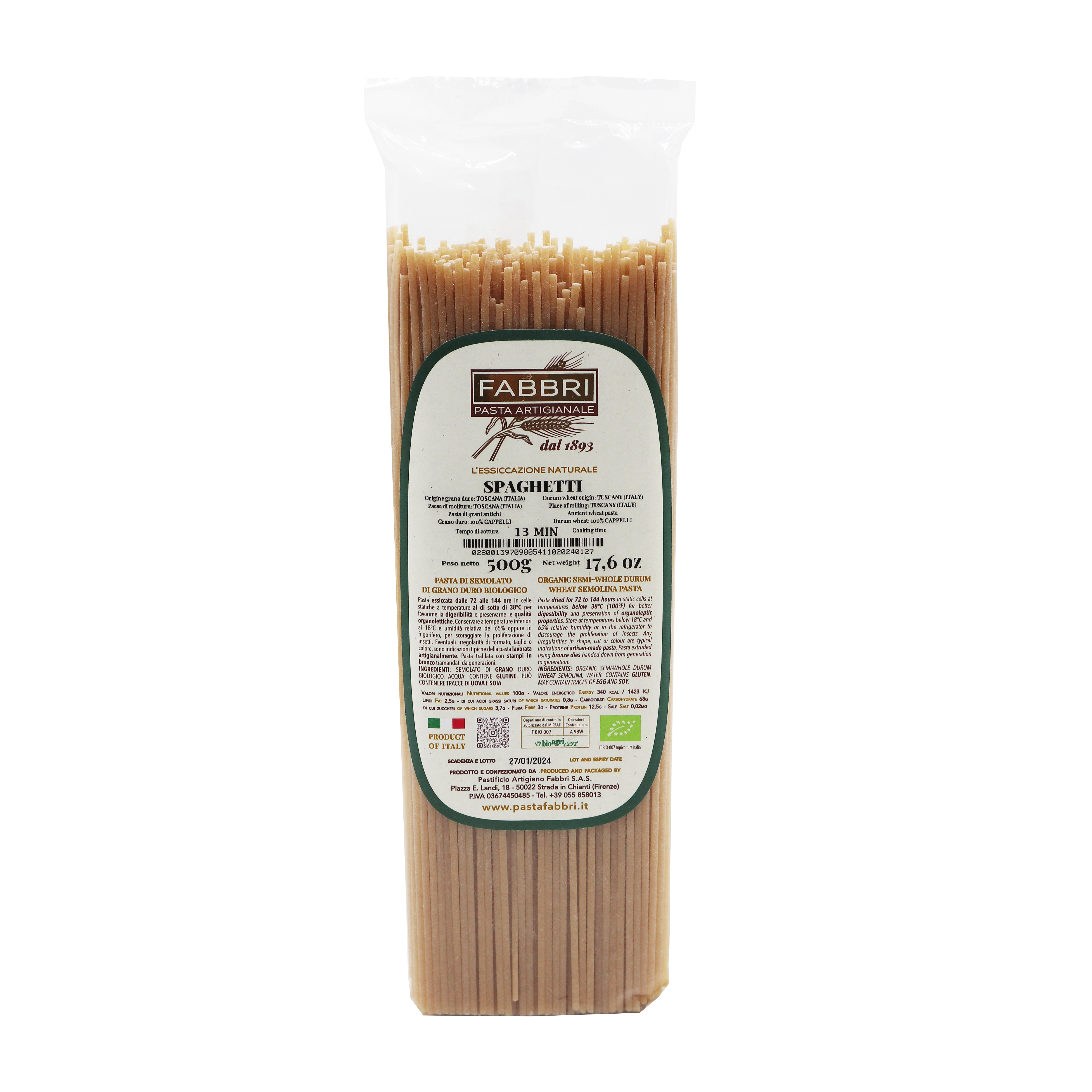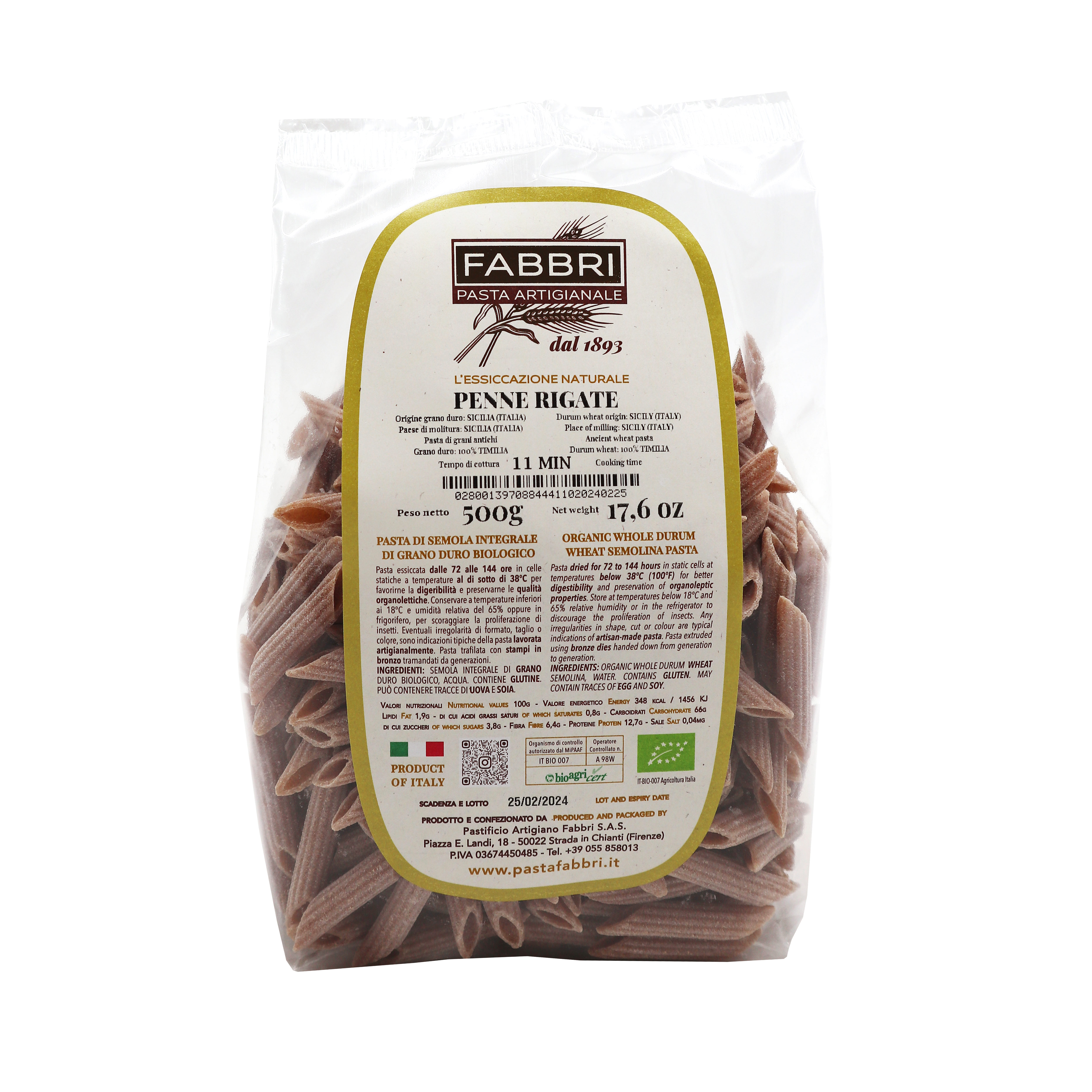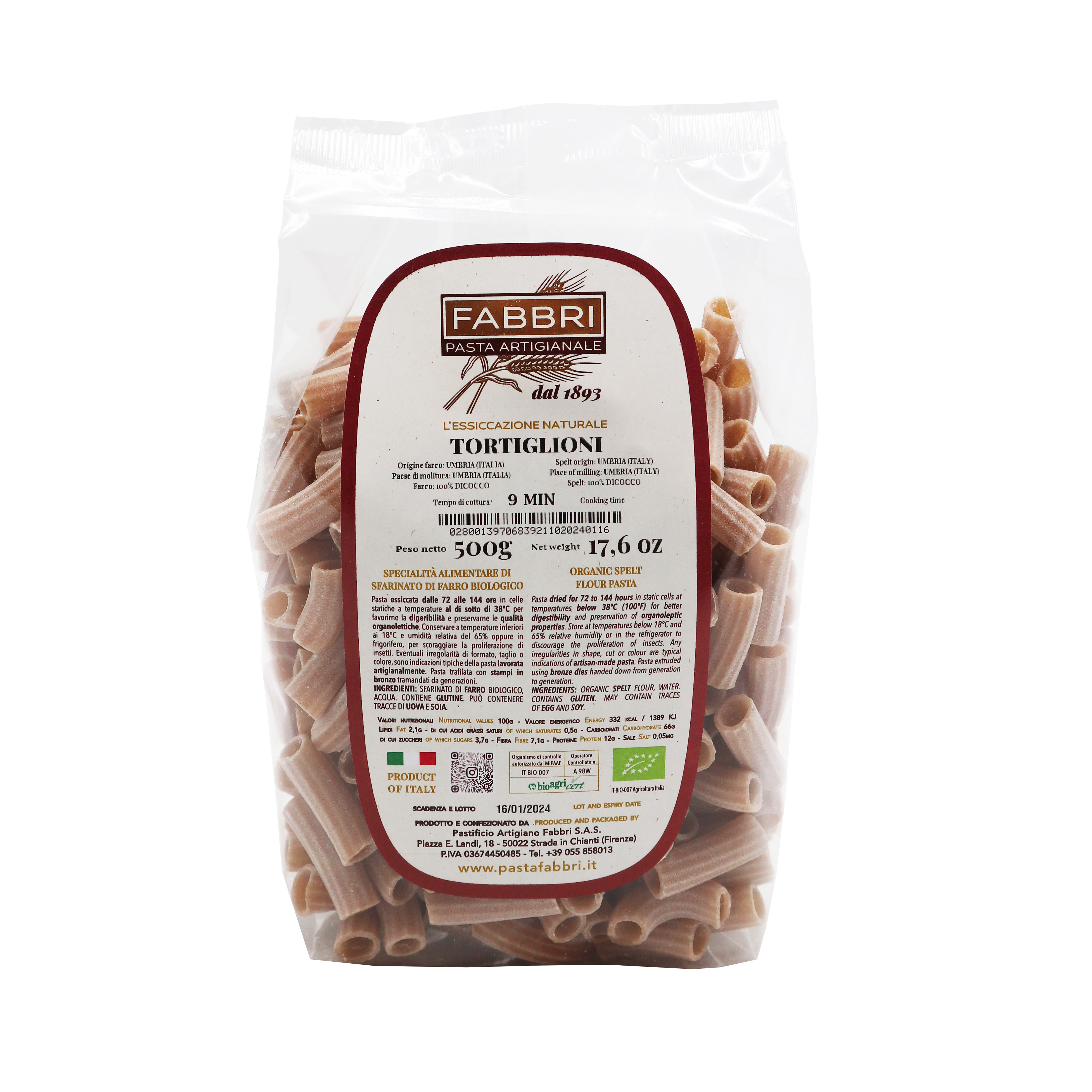

PASTIFICIO ARTIGIANO FABBRI
PASTIFICIO ARTIGIANO FABBRI
Company data
General information
Company Name: pastificio artigiano fabbri srl
Commercial Name: PASTIFICIO ARTIGIANO FABBRI
Vat number: 03674450485
Contacts
Company description
Company Details
Turnover 2024
500.000 - 1M
% export 2024
<25%
Workforce
9
Main Export Areas
Type of presence on the above markets
The company is registered at
Certification
Other certifications
Products produced
Price range
Main factors of competitiveness of the company
Does your company produce for private labels?
Attachments
| Company profile |
| Catalogo IT |
| Catalogue EN |
Video
Products in Tasting

The pasta is made with organic semolina obtained from carefully selected ancient grains, 100% Tuscan. The focus is not on the quantity but on the quality of the gluten they contain. The grains are milled by trusted mills that must never heat the grain during milling, in order to preserve the organoleptic properties of the semolina. All Fabbri pasta is produced and dried strictly below 38°C (100°F): this ensures the full flavor of the wheat is preserved and gives the pasta an extraordinary ability to absorb sauces.
 Brochure
Brochure
 Video
Video

The pasta is made from organic semi-whole semolina known as "semolato". Semi-whole semolina is less refined by milling than semolina, but it nourishes better and in a more complete way thanks to a higher content of fibres, polyphenols, wheat germs and vitamins. The dietary fibres convey a sense of satiety, lowering glycaemia and cholesterol levels in the blood and, finally, they facilitate intestinal transit. Semi-whole semolina is obtained from an ancient variety of wheat of Tuscan origin, the “Cappelli”, so named in honour of the Abruzzo senator Raffaele Cappelli, promoter of agrarian reform in the early-20th century. It is characterised by high digestibility, having never been genetically altered by modern agriculture. It has a high content of resistant starches which reach the large intestine unaltered, thus bringing innumerable benefits to our body: from favouring the absorption of mineral salts such as calcium, to the prevention of intestinal diseases.
 Brochure
Brochure
 Video
Video

Timilia or 'Tumminia' wheat is an ancient durum wheat. The organic whole-wheat flour obtained from this wheat is highly reminiscent of coffee and roasted hazelnut aromas, and the flavours and aromas of the field have always characterised it. Although it contains bran, the most fibrous part of the wheat grain, Timilia is very delicate and is also called 'fake durum wheat'. In fact, in Sicily, in addition to pasta, it is also used to make pizza and bread, precisely because of its characteristic delicacy, despite being a variety of durum wheat . Timilia wheat is processed by Molini del Ponte in Castelvetrano (Sicily), millers for generations and experts in typical Sicilian wheats. It is one of the mills committed to bringing ancient grains into production at a time when the industry was concentrating more on the high yield of raw materials and neglecting quality.
 Brochure
Brochure

Emmer wheat specifically Triticum dicoccum (the name dicoccum derives from the type of caryopsis composed of two grains), is an ancient relative of durum wheat. Its main characteristics are many: from its very high fibre content, to the low presence of gluten compared to durum wheat, which makes it very digestible. But that's not all: mineral salts and other micro elements that are essential for the body, such as methionine, essential amino acids and B vitamins, make it a truly nutritious flour. Being a very digestible but delicate cereal, its preparation is complex. Therefore, if it is processed at low temperatures, it will not be damaged and will keep its organoleptic properties intact. When cooked, emmer releases aromas and flavours ranging from hazelnut to chestnut and chocolate. For this reason, it is perfect when served with plain sauces.
 Brochure
Brochure